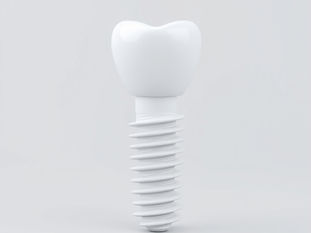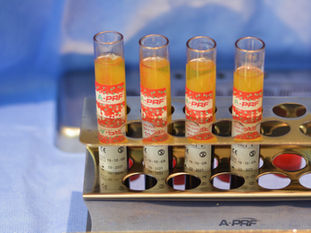
Exploring the Benefits of Ozonated Water in Holistic Dentistry for Enhanced Oral Health
Jul 20, 2025
4 min read
0
26
0
When it comes to maintaining healthy teeth and gums, many people are searching for alternatives to traditional dental treatments that often rely on chemical solutions. Ozonated water has emerged as a powerful and natural option in holistic dentistry, offering remarkable benefits for oral health. This blog post explores how ozonated water can enhance your dental care routine and improve overall well-being.
What is Ozonated Water?
Ozonated water is water that has been infused with ozone (O3), a molecule made up of three oxygen atoms. Ozone is known for its strong antioxidant and antimicrobial properties. In the realm of dentistry, ozonated water is increasingly recognized for its ability to disinfect, promote healing, and support oral hygiene.
Research indicates that ozonated water can effectively kill harmful bacteria and viruses that lead to oral diseases, contributing to healthier gums and teeth. For example, in one study, ozonated water reduced Streptococcus mutans, a primary bacteria responsible for tooth decay, by up to 90% within minutes.
Ozonated Water in the Treatment of Periodontal Disease
Periodontal disease is a common issue that affects the gums and is often linked to bacterial buildup and plaque formation. Ozonated water can be a highly effective treatment, specifically targeting harmful pathogens while preserving healthy tissue.
Studies show that ozonated water significantly reduces inflammation and promotes healing in gum tissues. For instance, using ozonated water in periodontal treatment can result in up to a 50% reduction in bleeding gums. This improvement not only helps those already suffering from gum issues but also plays a crucial role in preventing further complications.
Wound Healing with Ozonated Water
Post-surgery care is essential for optimal recovery after any dental procedure, such as tooth extraction or gum surgery. Rinsing with ozonated water can speed up the healing process by minimizing infection risks.
Ozonated water enhances tissue regeneration. It improves blood flow and oxygen delivery to the recovery sites, leading to faster and more efficient healing. Patients have reported a noticeable decrease in discomfort and swelling when ozonated water is included in their post-operative care regimen.
Enamel Regeneration
Enamel is the hard, protective outer layer of teeth. Protecting and reinforcing enamel is crucial for avoiding decay. Ozone therapy, particularly ozonated water, can support this role effectively.
Research suggests that ozonated water enhances the remineralization of enamel, which can reverse early decay signs before cavities form. A study found that patients who employed ozonated water in their dental hygiene routine experienced a 30% improvement in enamel remineralization compared to those who didn’t.
Cavity Prevention with Ozone Therapy
Cavities rank among the most common dental problems, primarily caused by plaque and acid-producing bacteria. Ozonated water is a natural rinse that effectively reduces dental biofilm—a sticky substance where harmful bacteria thrive.
In holistic dental practices, ozonated water is frequently used before and after standard procedures, serving as an adjunct to traditional methods. This dual approach leads to significant disinfecting effects, ultimately cutting the chances of developing cavities. Some clinics have reported a notable 40% decline in cavity rates among patients who regularly use ozonated water as part of their oral care routine.
The Role of Ozone Therapy in Dental Treatment
Today’s dentistry focuses more on minimally invasive and biocompatible techniques. The adoption of ozone therapy in various dental treatments exemplifies this trend, providing an effective natural alternative.
For instance, in root canal procedures, using ozonated water aids in disinfecting the root canal system without the need for harsh chemicals. This method not only supports the body’s natural healing processes but also enhances overall patient comfort.
Disinfection in Biodentistry
Proper disinfection is vital in any dental practice. Ozonated water has become an invaluable tool in biodentistry, offering a safe, effective means of cleaning dental instruments and surfaces.
As a non-toxic and biodegradable solution, ozonated water helps eliminate harmful microorganisms in dental settings. Its effectiveness can be particularly significant; studies indicate that ozonated water can reduce bacterial contamination levels by as much as 99.9%. This focus on natural disinfection methods aligns perfectly with the principles of biological dentistry.
Is Ozonated Water Safe for Teeth?
The safety of ozonated water for dental applications is well-established. Numerous studies confirm its non-toxic nature and efficacy when utilized properly. Unlike many mouthwashes that contain alcohol or other irritants, ozonated water is gentle on the oral mucosa while delivering potent antimicrobial benefits.
Patients seeking natural dental care options will find that incorporating ozonated water into their daily routines is easy. This allows for effective disinfection without the side effects often associated with chemical mouth rinses.

Embracing Ozonated Water for Optimal Oral Health
Integrating ozonated water into your dental routine can transform how you approach oral health. Its advantages—such as effective management of gum disease, faster wound healing, strengthening of enamel, and prevention of cavities—make it a powerful asset in holistic dentistry.
As the demand for natural, less invasive treatment options continues to grow, ozonated water is poised to play an essential role in modern dental care. If you want to enhance your oral health using safe and effective methods, consider consulting a biological dentist familiar with the benefits of ozonated water in their practices.
Disclaimer: This article is for informational purposes only and does not constitute medical or dental advice. Each case is unique, always consult with your dentist, physician, or qualified healthcare provider before making decisions about your health or treatments.











